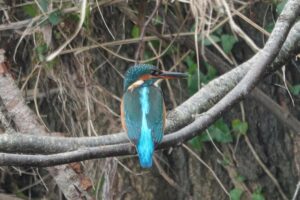Riverfly & Science
No posts found.
 The river Asker is the most westerly chalk stream in England. In common with most rivers it suffers from pollution – principally from agricultural land runoff and from storm water discharges. However, volunteer monitoring shows that this pollution, although undesirable is not as extreme as in many other rivers. Many invertebrates and fish are present which is demonstrated by the presence of such predators as Kingfishers, Little Egrets and Otters.
The river Asker is the most westerly chalk stream in England. In common with most rivers it suffers from pollution – principally from agricultural land runoff and from storm water discharges. However, volunteer monitoring shows that this pollution, although undesirable is not as extreme as in many other rivers. Many invertebrates and fish are present which is demonstrated by the presence of such predators as Kingfishers, Little Egrets and Otters.
The River Fly partnership initiative was formed to protect river water quality by monitoring the ongoing abundance of River flies and other invertebrates. Anglers and conservation group members can register with River Fly and undertake regular monitoring with the results being recorded and entered into a national database.
Sampling involves a small disturbance of the riverbed, and the dislodged invertebrates being captured by a small net on the downstream side of the disturbance, this is known as kick sampling
The resultant organisms are counted prior to being released unharmed back into the river.
Invertebrates including caddis flies and mayflies give an indication of the water quality. Comparing the results over time can give an indication of any increase or decrease in water quality.
Water pollution can be caused by run-off from farmed land which contain Nitrogen and Phosphorus in fertilisers and in animal waste products. These 2 elements can cause an imbalance in the growth of algae and bacteria, a process known as eutrophication which can lead to a serious reduction in oxygen levels in the water and consequent reduction or elimination of fish and invertebrates.
Another source of pollution is from discharges by sewage treatment plants and from storm water drains when overwhelmed during heavy rainfall.
Other volunteer groups which are monitoring the health of our rivers are Citizen Science and Wessex Water Guardians.

